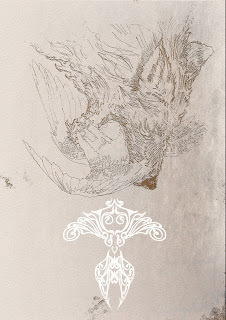Sins of the Maker: Editorial Review

Sins of the Maker attempts to explore the fissures that exist in our worldviews regarding God and its importance to human societies. Some long to live in a world where we are intrinsically loved just by being who we are. Others are unable to cradle the idea of a superior being that watches over us, a benevolent tyrant at best, a horrible executioner at worst. Growing up I loved my parents and I feared them. I wanted to be like them and I wanted them to feel proud of me. I was terrified of failing them. Yet, for all that I was, my father died before I could do any of those things that seemed so important. He never got to read my books or meet the love of my life. He won't seem e get married, will never meet my children, and will be absent on the day of my funeral, in both form and, somewhat, memory. His death, somehow, created in me the drive to finally act, to finally be like him and see him proud if only in the version of him that now lives in me. I wrote The Atlas of Dreams, in part, as a means to find meaning in death and ultimate nothingness. More than death itself, this book was written to celebrate the harsh reality that it is not only death we fear, but the death of others and, most of all, of our universe. If we can live on in our children and our deeds, if we can become the best thing we can ever be, a memory, then all is threatened by that unavoidable moment when cosmic heat death will make life impossible. When time itself may compress and wane... and stop. The most famous human will be forgotten, our greatest deeds will mean nothing. It shall be as if it never was. This is the greatest sin of our maker, to give us life and make us witnesses of its frailty. Of its end.
And so I wrote The Atlas of Dreams and chose Sins of the Maker to be the title of its first episode.
This book has many characters and all of them have issues with their makers; their mothers, their fathers, their God, their ideas and their beliefs. And everyone, from the incarnation of God, to the warrior, the boy, the atheist, the one who has everything and the one who has lost it all, they all suffer and fight with the clear notion that the Sins of their Makers define them. That these errors of the past were indeed errors. That they were crimes against us... against me. I say this because I felt, for a long time, that my relationship with my father was an error of time. That it was wasted in petty fights and minuscule victories I would trade in an instant. I found now, after having written the book, that his legacy, memetic as it is, was the gift itself and not the sin. That there are no Sins of the Maker, but just beautiful elements that fashion us in our minds. Whatever he did, whatever his life was, my father is not to blame for me in any but for the good that remains. So it is for the protagonists of The Atlas of Dreams. They realize, slowly, how the sin is not the error but the lesson, the victory over time. They learn to find hope in themselves and the memories handed to them by a species that desperately wants to be.
So, I guess, Sins of the Maker is a story of love and hope for those who made us and who we blame so often for our crimes. It is but a first step, the first book in five that attempts to tell the story of humanity from the heart out. It is followed by book 2, The Weight of our Crimes, book 3, Those who Bear Fangs at God, book 4, The Wings of Our Kindness, and Book 5, an epilogue for the story, Children of Ends.
I hope you enjoy it.
Daniel Cuervonegro.



